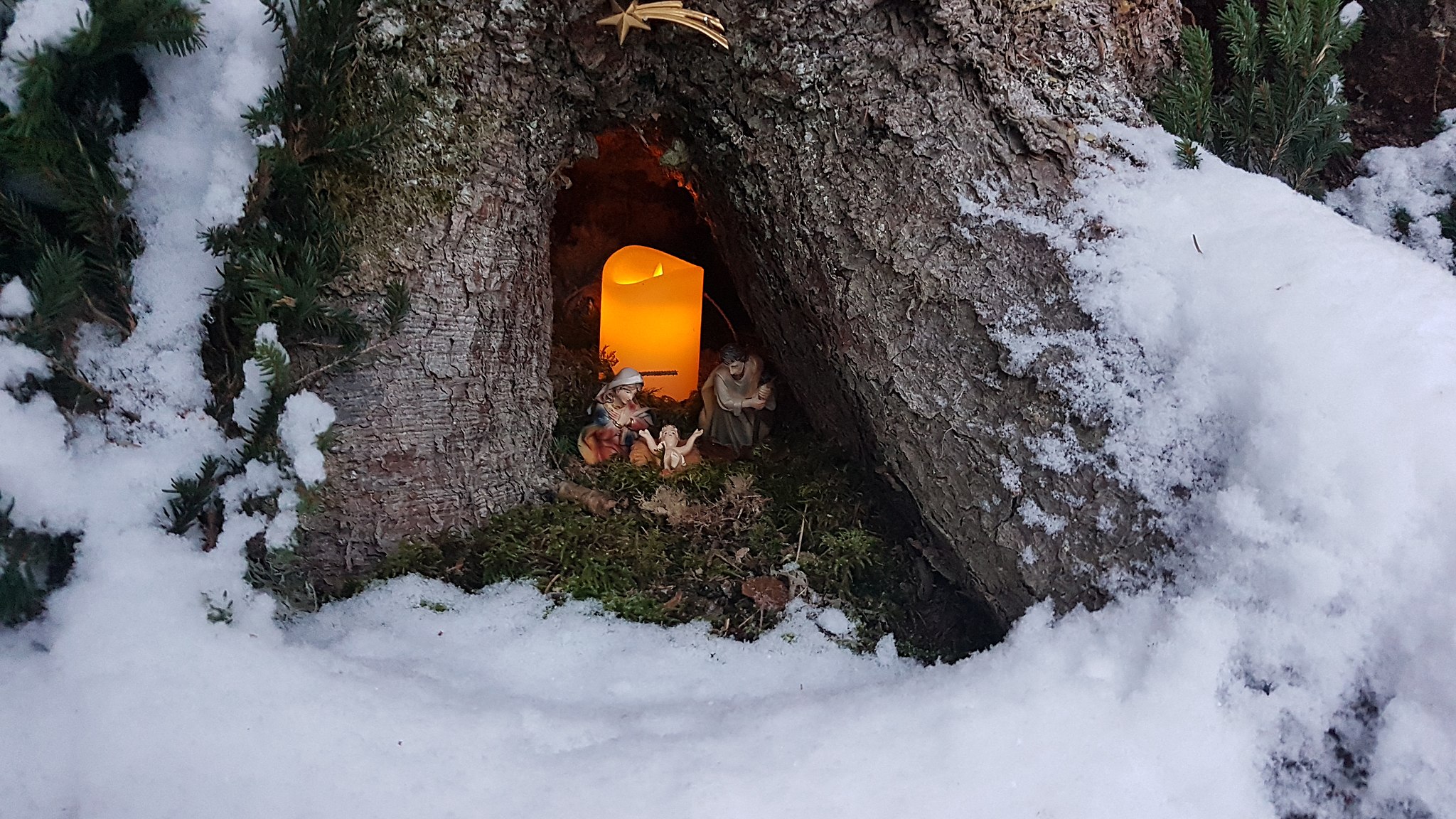- why we are here;
- we are a new creation; and
- the daily gift we offer.
Poll each of us, and we would hear various responses to why we are here. One thing that Christmas conjures fuels its celebrations: emotion. Aromas, sights, sounds, rituals, the very thought of Christmas stir us. I used to discount emotions in years gone by because I mistrusted them. Many helped me trust and accept emotions. Through emotions God communicates to us that we are alive, that God creates us each moment.
Like Christmas worship of God is emotion-rich. Christmas memories stir people to reach beyond themselves—in memory and in acton. St. Augustine was eloquent about memory, emotion and reaching beyond with love. About revering martyrs at their shrines and graves, he preached, “the memories that cling to those…altars [and places] where these holy bodies rest will stir our emotions and encourage us to greater love both for the martyrs whom we can imitate and for God whose grace enables us to do so.”2
By graciously empowering us to reach beyond ourselves God makes us a new creation. That phrase opened mass in mid-Advent: God…through your Only-Begotten Son [you] have made us a new creation.3 How? By being born in time and our human nature. “This wonderful blending”4 of divine and human John’s gospel assured us empowers [us] to become children of God. “Jesus Christ was born for this!”5 we sing. On the birthday of Christ Jesus in time and our human nature we recall God’s daily gift to us: God’s gift of becoming children of God.
God’s transforming gift is for every day. God gives it to us to share with others. No share in God’s healing life is given to keep. What can we offer? With his finger on the pulse of human living Pope Francis suggests kindness is the best daily gift we offer. In his recent encyclical Francis urges us to recover kindness. “Those who [cultivate kindness] become stars shining in the midst of darkness.” Christian kindness outshines good manners. It is a fruit of the Holy Spirit for us. Practicing kindness “involves ‘speaking words of comfort, strength, consolation and encouragement’ and not ‘words that demean, sadden, anger or show scorn.’” Indeed, acting kindly “opens new paths where hostility and conflict would burn all bridges.”6

By offering kindness as our daily practice we help kindness become a culture. Francis reminds us a culture is a network of a people’s “desires, their interests and ultimately the way they live their lives.”7 In addition to easing others’ burdens giving kindness daily “transforms lifestyles, relationships and the ways ideas are discussed and compared.”8 The eyes of those who receive kindness may mist with tears; that mist does not obscure vision; it helps individuals see themselves more clearly: possessing dignity; enjoying respect; and living as a new creation. Resolving to offer kindness more readily imitates God’s kindness to us; it is the timely gift our world sorely needs; and each of us is empowered to offer it everyday. Merry Christmas!
___________
- Karl Rahner, “Christmas, the Festival of Eternal Youth,” Theological Investigations, vol. VII, (NY: Herder and Herder), p. 121.
- From his Treatise Against Faustus used in the Office of Readings of the Liturgy of the Hours.
- Third Week, Tuesday, Collect, Roman Missal.
- Leo the Great, Letter 31.2, also in the Office of Readings.
- 2nd verse of “Good Christians All Rejoice,” Lyrics, John Mason Neale (1818-1866).
- Fratelli Tutti, ##222-224.
- Fratelli Tutti, ##216.
- Fratelli Tutti, ##222.
___________
Wiki-images by Asurnipal Simple Christmas crib in a hollow tree in Frastanz, Vorarlberg, Austria & Detail of same CC BY-SA 4.0.

No comments:
Post a Comment